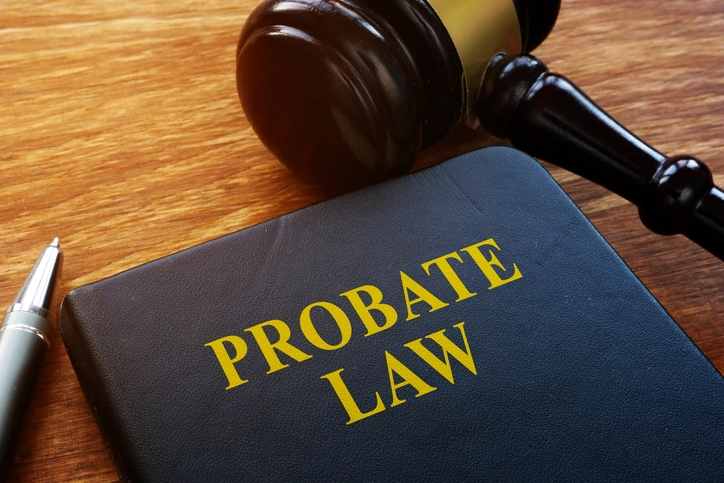
Flat fee structure means no surprise costs.
Custom solutions to protect your legacy.
7 generations in Denton, Texas.
Probate
Probate is a legal procedure that handles the transition of assets after a person’s death. Hunter Sargent, PLLC can suggest alternatives that will bypass the probate process, transfer your legacy with efficiency, and protect it against any claims. Learn more about our probate services below.
At Hunter Sargent, PLLC, we’ve helped countless clients protect their futures and secure their legacies. When you partner with us, you can rest easy knowing whatever life throws your way, we’ve made a plan to handle it. Call us at (940) 594-7754 to schedule a consultation today.
We get it: No one likes thinking about their mortality, much less planning for it.
That’s why so many families shy away from conversations about inheritance and fail to discuss how a loved one’s assets should be divided after their death. Instead, they avoid the topic and don’t revisit it until after a family member has passed away. Unfortunately, by the time they’re faced with the reality, certain legal processes are already in motion.
When someone dies with only a will in place (or dies intestate, meaning without a will), their estate, including all of their assets, property and liabilities, must go through a process called probate before being transferred to their beneficiaries. Although probate is helpful under some circumstances, it is also a time-consuming and potentially expensive process—and those aren’t the only drawbacks.
Probate proceedings are a matter of public record, meaning that anyone can access information about the decedent’s assets, debts and beneficiaries. But perhaps the biggest downside to probate is that it leaves heirs with very little control over their deceased loved one’s estate. In the end, the court has the final say about how all assets are distributed.
Luckily, families of the deceased aren’t entirely without recourse.
An experienced probate lawyer can help them navigate the process from start to finish, offering legal advice to beneficiaries, filing court documents, resolving creditor claims and more. Keep reading to learn everything you need to know about the probate process, types of probate and why working with an attorney may be in your best interest.
Is your recently deceased family member’s estate about to enter the probate process? You don’t have to go through it alone. Contact our trusted probate attorneys online to schedule a case evaluation today.
What is probate?
Probate is a court-controlled process for transferring assets from someone who died (the decedent) to the decedent’s beneficiaries. The beneficiaries are the people or organizations listed in the decedent’s Will. When the decedent dies with a Will, we refer to this as dying “testate”.
If the decedent died without a Will (intestate), then the decedent’s beneficiaries will be determined by Texas law. Usually, Texas law grants the estate to those closest on the decedent’s family tree – spouse, children, etc. This means that without a Will, your assets could pass to your crazy Uncle that you haven’t talked to in twenty years.
During probate, everything in your Will, everyone you leave property to, and everything you own will be made public record searchable by anybody with an internet connection.
The person in charge of your Will must testify in front of a judge at least once before your Will is legally effective. Do you want your spouse or children to answer questions from a judge after they just lost a loved one?
This means just having a Will – even though every person should have a Will as a backup — is usually a bad strategy for your estate plan.
A Will is a one-way ticket to probate.
Some lawyers love probate because it makes them a lot of money and they get to go to court. However, probate should be avoided if possible (with very limited exceptions for special needs spouses). Probate in Texas is expensive (it usually costs more than probate alternatives), slow, and very public.
In Texas, a Will is not effective until it is probated. That means your Will must go through the entire probate process or your legacy will be out of your hands.
Proper estate planning prepared by an estate planning lawyer allows your beneficiaries to inherit your legacy without the cost and headache of the probate courts.

Different types of probate.
The two main types of probate are called independent administration and dependent administration.
In an independent administration, the Will is presented to the probate court, the person in charge of the will gives testimony, and the judge signs an order giving your executor full authority over your estate. Your executor doesn’t have to go back to court or ask permission for most actions. Of course, independent administrations are the much easier and less expensive option.
In a dependent administration, your executor must be supervised by the court at every step. There will be frequent hearings and visits to the courthouse. Selling a house, closing bank accounts, collecting investments, and distributing assets all require an in-person visit with the judge.
Fortunately, dependent administrations can be avoided with properly drafted estate planning documents or the agreement of all your heirs. However, it’s impossible to predict whether a judge will allow an independent administration if there’s something wrong with your estate plan.
For more information on probate in Texas, a free consultation with a probate lawyer is your next step. Get the information and legal advice you need by calling Hunter Sargent, PLLC at (940) 594-7754.
Understanding Probate in Texas
Simply put, probate is a court-supervised procedure that handles a deceased person’s estate. If the deceased left a last will and testament or living trust, the process can be relatively simple: The court authenticates the will and approves an executor to distribute estate assets. In the absence of a will, however, things get more complicated.
Without documentation of the deceased’s wishes, it’s up to the court to decide how to handle and distribute the estate. As you can imagine, this can be a difficult and frustrating situation for surviving family members who believe they have inside knowledge into how probate assets should be handled. Establishing a thorough estate plan can make the probate process much easier, and in some cases, it allows probate to be bypassed altogether.
Which Assets Are Subject to Probate?
Whether or not an asset must pass through probate depends on the specific details of the deceased person’s estate. Typically, any undesignated assets that were solely owned by the deceased will be subject to probate, including the following:
- Real estate, including houses, apartments, land and other types of real property
- Bank accounts and investment accounts
- Personal property, including cars, furniture, jewelry and other belongings
- Business interests
Certain assets do not pass through probate, including property held jointly with the right of survivorship, as well as life insurance policies and retirement accounts with designated beneficiaries. Assets held in a living trust, payable-on-death account or transfer-on-death deed are also exempt from the probate process.
How Can I Avoid Probate in Texas?
If you want to spare your loved ones from probate, the best thing to do is partner with an experienced estate planning attorney. Depending on the size and complexity of your estate, they may suggest several different strategies, including designating beneficiaries, establishing trusts, holding property jointly with another person or using a transfer-on-death deed.
Probate Litigation
When disputes over the deceased’s assets, estate management, guardianship assignments or similar issues arise during probate proceedings, they are resolved through a legal process called probate litigation. A probate lawyer is an attorney who specializes in representing clients in their court battles with other family members, beneficiaries of an estate or other parties in the event of a will contest.
After your probate attorney understands your concerns and goals, they will design a strategy around the specifics of your situation. They will help you negotiate with other parties, file legal motions, conduct discovery and represent you in court.
When Is Probate Litigation Necessary?
Although probate litigation is necessary in a variety of scenarios, some reasons are more common than others. Typically, people pursue estate litigation in the following situations:
- There is a dispute over the validity of the deceased’s will.
- There is a dispute regarding the distribution of estate assets.
- There is a breach of fiduciary duty, whether by executors, administrators or other fiduciaries.
- There is a dispute about property ownership.
- There is a dispute about guardianship.
Many different types of legal proceedings can become heated, but probate cases tend to be especially emotionally charged. That’s why it’s essential to work with an estate law firm you trust to help you understand your specific rights and legal options.

Probate Lawyer FAQs
Depending on the complexity and size of the estate in question, probate can be an especially trying process—especially when there are conflicts among beneficiaries. If you have questions about the probate process, it’s smart to contact a probate law firm right away. In the meantime, check out the answers to some of our most frequently asked questions.
How much does probate cost?
A variety of factors affect the final cost of probate proceedings. In Texas, probate fees depend on statute, size of the estate and the county in which it takes place. The executor and administrator may be entitled to a fee, which is typically a percentage of the estate’s value. Your attorney will also charge a fee, the amount of which will depend on the attorney’s experience, the complexity of the case and the type of legal representation they provide to you.
What are the different types of probate in Texas?
There are three types of probate in Texas: independent administration, dependent administration and muniment of title. Whereas independent administration—the most common type of probate—allows an executor to oversee the estate’s distribution with minimal court supervision, dependent administration relies on court approval for most estate-related actions. Muniment of title is reserved for transferring real estate titles of the deceased, but only if no debts are owed by the estate, other than the mortgage. As a simplified probate process, muniment of title does not require an executor or the filing of inventory.
Who can file probate?
Probate can be filed by the executor named in the will, a family member or beneficiary, as well as by an interested party after submitting an application to probate court. In cases where the decedent left a will, their named executor will usually file for probate and manage the estate. In the absence of a will, the court appoints a manager for estate administration.
Who can serve as an executor in Texas?
In order for someone to serve as an estate’s executor in Texas, that person must be at least 18 years old, a state resident and NOT a convicted felon. If a named executor is only ineligible because they are not a state resident, they must appoint a resident agent to accept legal papers on their behalf.
How do I find the best probate lawyer near me?
When you Google phrases like “best probate attorney near me,” you’ll find numerous legal options to choose from. The best way to narrow your selection is by looking for qualities like expertise, excellent communication and years of experience winning cases like yours. Most importantly, though, you need to find a probate lawyer who’s as skilled at listening as they are litigating. Luckily, you don’t have to look too far.

Schedule a meeting now To Start
The best time to plan your legacy was 10 years ago. The next best time is today. Everyone needs estate planning – the good news is it’s never too early and if you’re reading this, it’s not too late.


